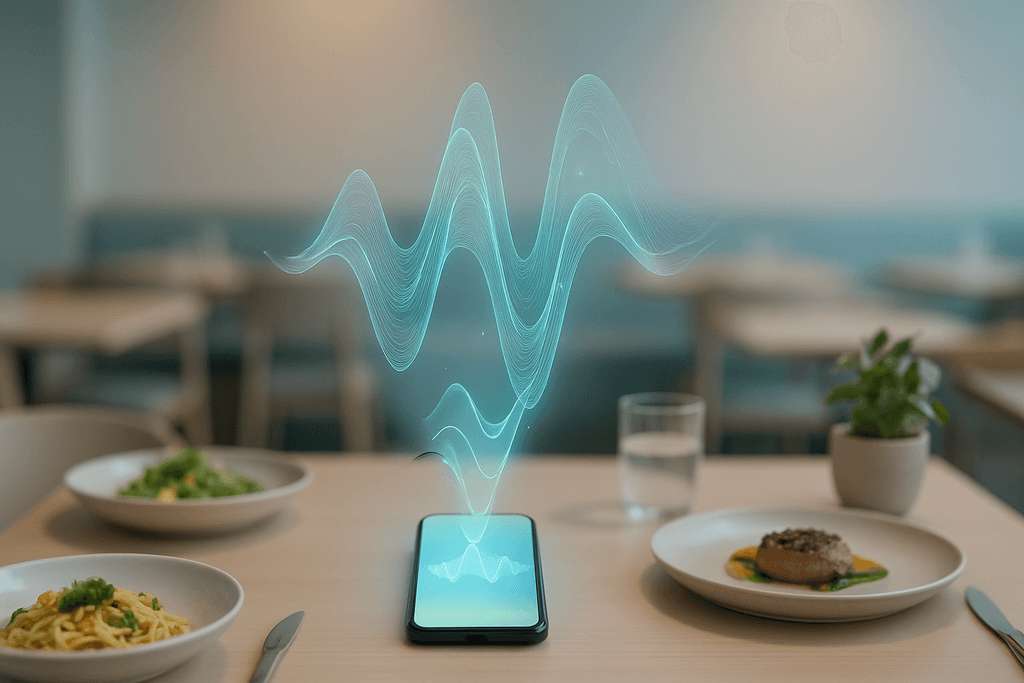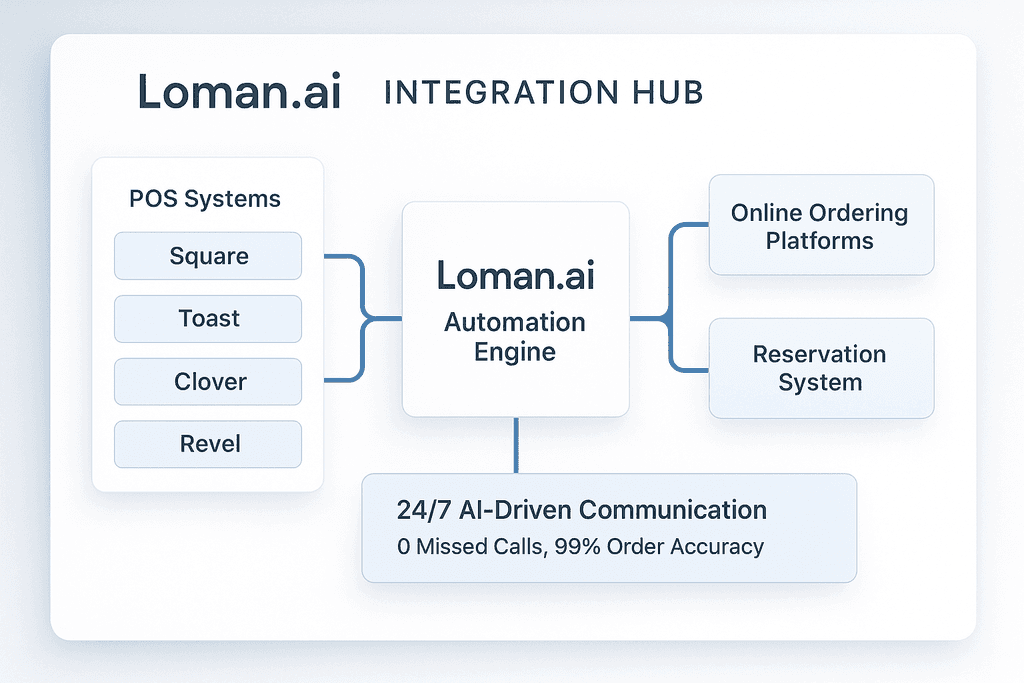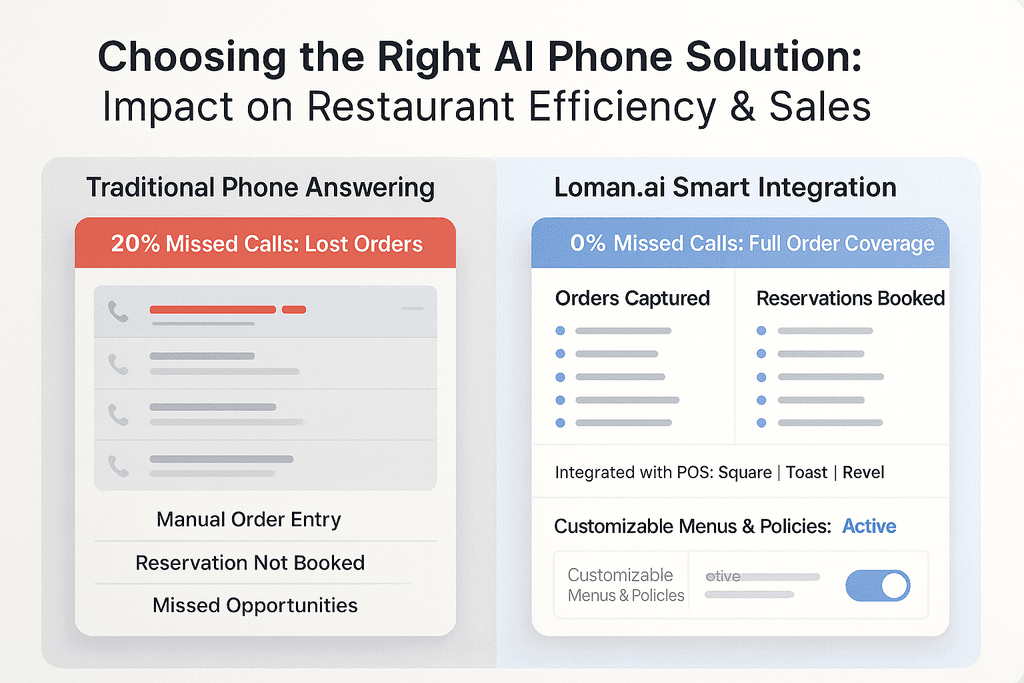September 2, 2025

Missed calls mean missed opportunities for restaurants. A staggering 85% of customers won't call back if their first attempt goes unanswered, potentially costing establishments thousands in lost revenue. AI phone answering systems like Loman.ai are revolutionizing how restaurants handle incoming calls, ensuring every customer inquiry is addressed promptly and professionally.
Restaurants lose about $40,000 per year from missed calls alone. That's a lot of potential orders and reservations slipping through the cracks. Phone management is a big headache for most eateries, especially during busy hours when staff are running around like headless chickens.
Here's what typically happens in restaurants without good phone systems:
It's not just about lost money. Bad phone experiences make customers grumpy. They might leave nasty reviews online or tell their friends not to eat there. That's the kind of word-of-mouth no restaurant wants.
So what's the fix? More and more restaurants are turning to AI phone systems. These smart assistants can:
The best part? AI doesn't need breaks, doesn't get stressed, and can handle multiple calls at once. It's like having a super-efficient receptionist who never sleeps.
Of course, not all AI phone systems are created equal. Restaurants need to pick one that really gets the food industry. For example, Callin.io offers an AI system built just for restaurants. It knows how to handle special requests, dietary needs, and all the quirks of food ordering.
The right AI phone system can be a game-changer for restaurants. It keeps the phone lines humming, the orders flowing, and the customers happy. And happy customers mean a healthier bottom line.
When choosing an AI phone system for your restaurant, it's crucial to focus on features that'll make your life easier and your customers happier. Let's break down what really matters.
First up, you want a system that can take orders without breaking a sweat. Automated order taking that plays nice with your POS is a game-changer. It means fewer mistakes and faster service - win-win.
Next, look for 24/7 reservation management. Your AI should be able to book tables anytime, even when you're catching some z's.
These features ensure your AI can handle the unique quirks of your restaurant and know when to tag in a human teammate.

While not deal-breakers, these features can take your AI phone game to the next level:
Remember, the goal is to find a system that fits your restaurant like a glove. Don't get dazzled by fancy features you'll never use.
Getting your new AI phone system up and running smoothly is key. Here's what to keep in mind:

Make sure the AI platform plays well with your existing tech. Data synchronization between your AI, POS, and reservation systems is crucial for avoiding headaches down the road.
Most good AI systems work with popular restaurant POS setups. But double-check compatibility before you commit.
A successful AI phone system rollout typically follows these steps:
Expect the whole process to take a few weeks, depending on your restaurant's complexity.
Be prepared to tackle these typical challenges:
The key is to stay patient and work closely with your AI provider to iron out any kinks.
Once your AI phone system is humming along, you'll want to know if it's pulling its weight. Here's how to keep score:
Track these metrics to gauge success:
Labor cost savings are often the most immediate and noticeable benefit. Many restaurants see a significant drop in phone-related staffing needs.
Keep an eye on your bottom line. AI phone systems often lead to:
One pizzeria owner reported a 15% jump in phone orders after implementing an AI system. The machine never forgets to mention specials or ask about add-ons.
Don't forget to listen to your diners. Use surveys or review monitoring to gauge how customers feel about the new system. Most folks appreciate the quick, consistent service once they get used to it.
Remember, the true value of an AI phone system goes beyond just numbers. It's about creating a smoother, more efficient restaurant that keeps customers coming back for more.

Restaurants lose up to 20% of potential orders due to missed calls. AI phone answering systems can plug this gap, but picking the right one is crucial. Let's break down how to choose wisely.
When evaluating AI phone platforms, consider these key factors:
The best AI phone system for your restaurant should address your specific pain points. Are you missing late-night orders? Look for 24/7 availability. Struggling with reservation management? Prioritize platforms with robust booking features.
While feature-rich platforms are tempting, balance is key. Consider your budget and choose a system that offers the most value for your investment. Remember, the goal is to boost efficiency and sales, not break the bank.
Scalability is another crucial factor. As your restaurant grows, your AI phone system should keep pace. Look for platforms that can easily adapt to increased call volumes and expanding menu options.
Customer support and regular updates are often overlooked but vitally important. A system like Loman.ai, which offers ongoing support and frequent improvements, can ensure your AI phone agent stays current and effective.
By carefully weighing these factors, you can select an AI phone platform that not only meets your current needs but also supports your restaurant's future growth. The right choice can lead to happier customers, more efficient operations, and a healthier bottom line.
Choosing the right AI phone answering platform for your restaurant can make a big difference. These systems help handle calls, take orders, and manage reservations without missing a beat. They work around the clock, freeing up your staff to focus on in-house customers.
The long-term benefits are clear: better efficiency, happier customers, and potentially more profit. But it's not just about the tech - it's about finding a solution that fits your restaurant's unique needs.
As you explore options, consider how they'll integrate with your current setup. Look for platforms that can grow with your business. Loman.ai, for example, offers customizable AI capabilities that adapt to different restaurant environments.
Remember, the goal is to enhance your service, not replace the human touch that makes dining special. The right AI phone system should complement your team, making everyone's job easier and improving the overall customer experience.
Curious about how AI phone answering could work for your restaurant? Many providers offer demos to help you see the system in action. It's worth taking the time to find the right fit - your future self (and your staff) will thank you.
Want to learn more about AI in restaurants? Check out our blog for the latest insights and tips on using technology to boost your business.
Modern AI phone systems are highly accurate in taking orders. They can understand various accents and background noise, often matching or exceeding human accuracy. For example, Loman.ai boasts an accuracy rate of over 95% in order-taking, reducing errors and improving customer satisfaction.
Yes, AI phone systems can manage complex menu modifications. They're trained on specific restaurant menus and can process detailed requests like ingredient substitutions or special dietary needs. If a request is too complex, the AI can smoothly transfer the call to a human staff member.
If the AI struggles to understand a caller, it has a few options:
Setting up an AI phone system is typically quick and straightforward. Most restaurants can be up and running within a few days. The process involves integrating with your existing phone system and POS, and training the AI on your specific menu and policies. Loman.ai, for instance, offers a smooth setup process with ongoing support.
AI phone systems prioritize data security. They use encryption and comply with industry standards to protect customer information. When choosing a system, look for features like secure payment processing and compliance with data protection regulations. It's always a good idea to ask potential providers about their specific security measures.

Enter your information in the form to receive a call from Loman and place an order like a customer would!